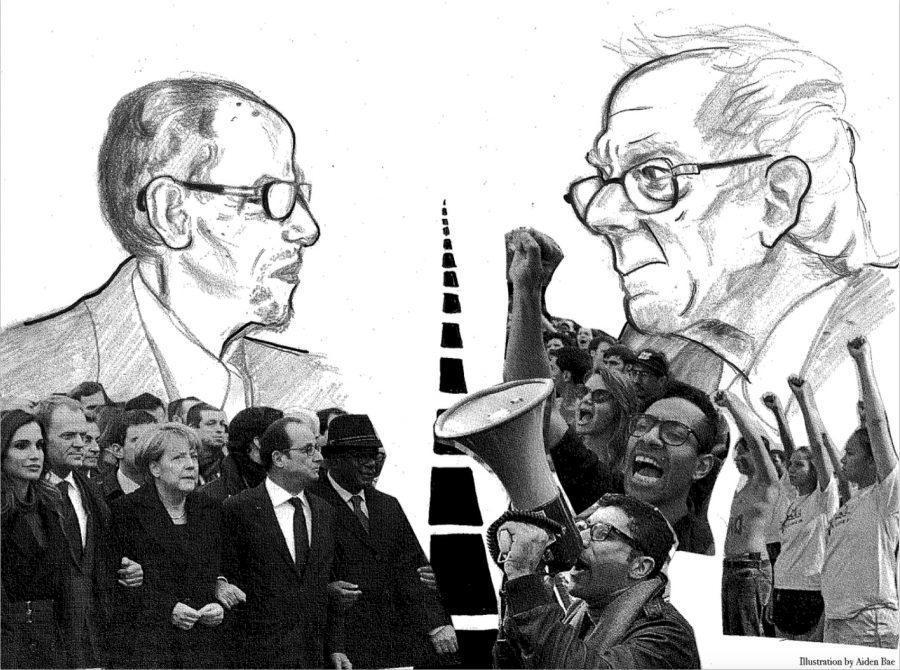As Tempers Among Democrats Flare, Party Unity is Imperative
March 2, 2017
The Democratic and Republican parties are grappling with the same conundrum: a smoldering sense of dissatisfaction with the establishment among large swaths of their bases. While the Republicans in Washington have been feeling the heat of a shifting base since the rise of the Tea Party, this conflict feels riper across the aisle. After Sen. Bernie Sander’s rise to prominence, as well as a new administration viewed as abhorrent by many on the left, the Democrats are now reckoning with a galvanized progressive wing poised to leave its mark on the party’s platform.
We saw this on campus during the election, where vocal Sanders supporters could be spotted in multitudes. The contentious primary season sparring between the Sanders and Clinton — the establishment — factions of the party have persisted, most recently in the election for Chair of the Democratic National Committee. Tom Perez, former Labor Secretary under President Obama, narrowly defeated the Sanders-backed Minnesota Rep. Keith Ellison last week in what some on the left feel was a rejection of the invigorated progressive wing by the party’s establishment. As the Republicans ready their legislative offensive, it is vital that Democrats remain focused on the real opposition and not allow in fighting to hinder the ultimate goal of electoral victories.
That is not to suggest that the Sanders/Ellison wing has nothing to be upset about — quite the opposite. Both men lost their elections to candidates who benefited from nepotism and structural issues within the Democratic Party. However, to decree Perez’s victory as a loss for progressives, while optically true, is false in actuality. Doing so ignores Perez’s own strong record of progressive policy preferences and actions. For further proof that he was the party to embrace the grassroots tactics and populist emphasis that his opponent advocated, look no further than his appointment of Ellison to Deputy Chair of the DNC immediately following his victory.
That act of solidarity, along with Ellison’s grace in accepting the role, should serve as a template for Democrats going forward. Both Perez and Ellison recognize that the urgent need for cooperation in the face of the Trump administration supersedes any differences — both substantial and trivial — the two might have.
Staunch progressives on the left have been relatively successful in affecting platform change thus far. The pressure the Sanders coalition put on Clinton during the primaries pushed her to inch farther left, including adopting support for a $15 minimum hourly wage. Now, with two progressive-minded figures running the party’s fundraising and infrastructure, it is on Democrats across the spectrum to prioritize unity over small policy disputes — at least for the next four years.
Email Nate Torto at [email protected].
















































































































































Trakar Shaitanaku • Mar 21, 2017 at 11:35 pm
“Get behind us, vote for us, support whatever we do, and shut-up until we tell you what to say and when to say it,” which seems to be the totality of establishment Democratic party leadership, isn’t going to get any Progressives to vote Democratic in the present of future.